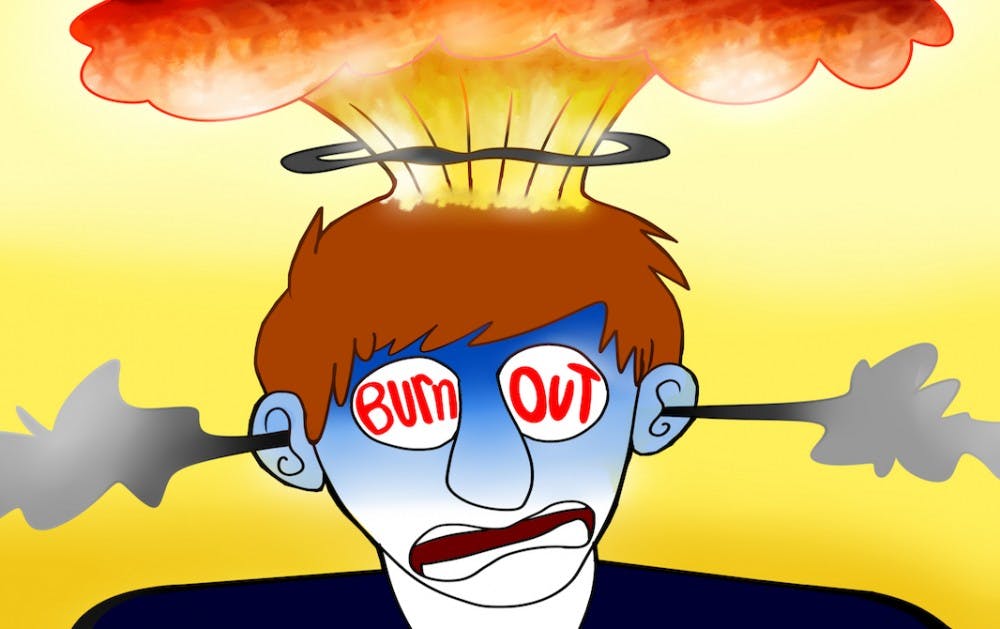Academic burnout is inevitable and should be regarded as a serious academic and mental issue that prompts students to seek help. This type of burnout can negatively impact students’ overall well-being if the proper self-care is not conducted.
As defined by Christina Maslach, a professor at UC Berkeley, burnout is a “psychological syndrome involving emotional exhaustion, depersonalization and a diminished sense of personal accomplishment that occurred among various professionals who work with other people in challenging situations.”
If left unacknowledged, academic burnout can promote a variety of serious health risks.
ASU students are constantly experiencing new levels of heightened stress due to the pressure to excel in academic endeavors like graduate level classes or internships, accompanied with trying to figure out how to navigate new situations.
“At ASU we also have a very active student body, with many students engaged in other responsibilities that happen outside the classroom, but certainly impact the whole learner environment,” said Teri Pipe, ASU chief well-being officer. “Academic burnout is highly individualized, and there is help available. If you have academic burnout, you are not alone.”
Academic burnout is common throughout the academic year but can spike around times of elevated pressure such as midterms and finals. This can increase students’ likelihood of experiencing extreme stress, which can cause them to develop negative habits and fall behind in school, a cycle that can be difficult to break.
“It can be characterized by symptoms such as emotional, physical, mental exhaustion, cynical attitudes toward others (and a) decreased sense of personal accomplishment,” Pipe said. “Students who are in a state of academic burnout might notice they lose interest in their classes (and) their interpersonal relationships, (they) may become more challenging and health indicators like sleep, nutrition, physical activity may change in non-helpful ways.”
Students need to be aware that there are successful methods to combat academic burnout.
ASU has countless academic resources and counseling services, and has recently launched a new online service specifically targeted to help promote student wellness.
“In TAO Connect students can access self-guided modules for anxiety, depression, relationship concerns, mindfulness and substance abuse," said Aaron Krasnow, associate vice president/director of ASU counseling services. "It’s like Life Hacks for your mental health."
According to a 2007-09 online survey of college students nationwide published in the Journal of American College Health, 32 percent portrayed symptoms consistent with a mental health diagnosis; however, of those students, over half did not receive help.
Solutions to academic burnout are not just limited to counseling. It can be as simple as turning off one's cell phone and allotting personal time each day to reflect and find positive solutions to stressful situations, or setting aside time to create a well-structured schedule to be successful the rest of the week.
Burnout is not only prevalent in college. It can occur at any time in one’s life, so it is important to be acquainted with the symptoms and develop healthy coping mechanisms.
Whether it is utilizing online services or seeking in-person help, it never should be shameful to maintain quality mental health both in and out of the classroom.
Reach the columnist at hncumber@asu.edu or follow @hncumber on Twitter.
Editor’s note: The opinions presented in this column are the author’s and do not imply any endorsement from The State Press or its editors. Want to join the conversation?
Send an email to opiniondesk.statepress@gmail.com. Keep letters under 500 words and be sure to include your university affiliation. Anonymity will not be granted.
Like The State Press on Facebook and follow @statepress on Twitter.




